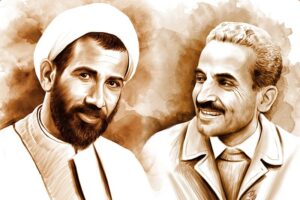This revelation has unleashed a cascade of consequences, further straining bilateral relations between the two nations
Updated On – 02:47 PM, Tue – 19 September 23

Hyderabad: Canadian Prime Minister Justin Trudeau made a startling announcement on Monday, unveiling “credible” information connecting Indian government agents to the assassination of a prominent Sikh separatist leader in British Columbia back in June.
This revelation has unleashed a cascade of consequences, further straining bilateral relations between the two nations, already on shaky ground due to Canada’s perceived leniency toward Sikh protesters advocating for an independent Sikh homeland.
In a swift reaction, India’s government spokesperson swiftly dismissed these allegations as both “absurd and motivated.” The Indian side emphasized that Canada had previously made similar claims to their Prime Minister, which had been entirely rejected.
To add fuel to the fire, Canadian authorities have reportedly expelled a high-ranking Indian diplomat, the head of India’s foreign intelligence agency in Canada.
In a retaliatory move, India has expelled a Canadian diplomat, escalating the already simmering diplomatic tensions. The Indian Ministry of External Affairs summoned High Commissioner to India Cameron MacKay, delivering a strong message amid the escalating India-Canada rift over the Khalistani terrorist’s death. The diplomat in question has been instructed to leave India within the next five days.
Who was Hardeep Singh Nijjar?
The core of this contentious issue revolves around the murder of Hardeep Singh Nijjar on June 18. Nijjar met a tragic end, being gunned down outside a Sikh temple in Surrey, British Columbia. A fervent advocate for the creation of Khalistan, an independent Sikh nation within India’s Punjab state, Nijjar had been a target of Indian authorities. He was officially designated as a “terrorist” in July 2020.
Canada’s intelligence agency had warned Nijjar about imminent threats against him. The World Sikh Organization of Canada has gone a step further, alleging that Nijjar was “assassinated in a targeted shooting,” adding to the intrigue surrounding his death.
The legacy of Punjab’s Khalistan Movement
The Indian state of Punjab, with a population that is approximately 58 per cent Sikh and 39 per cent Hindu, has a history marked by the violent Khalistan separatist movement of the 1980s and early 1990s, resulting in the loss of thousands of lives. Presently, the most vocal proponents of this movement are predominantly within the Punjabi overseas diaspora, scattered across the globe.
India’s concerns over Canada’s Sikh community
Canada is home to one of the world’s largest overseas Indian communities, numbering around 1.4 million within a total Canadian population of 40 million. The 2021 census reveals that approximately 770,000 individuals identify as Sikhs. Remarkably, Canada boasts the highest Sikh population outside of Punjab.
India has consistently expressed concerns to Canada’s government regarding the activities of Sikh hardliners within the Indian diaspora. Indian officials assert that these individuals are actively working to reignite the insurgency.
Trudeau’s balancing act on free speech
In June, India’s Foreign Minister criticized Canada for permitting a parade float depicting the 1984 assassination of then-Indian Prime Minister Indira Gandhi by her bodyguards. India saw this as glorifying violence by Sikh separatists. In 2018, Justin Trudeau reassured India that Canada would not support any efforts to revive a separatist movement within India. However, he consistently emphasizes his respect for the right to free speech and assembly for protesters.
Impact on Canada-India relations
The recent developments have cast a shadow over the Canada-India relationship. Earlier this year, both nations had expressed optimism about reaching the outlines of a trade deal by the end of 2023. However, these talks have now come to an abrupt halt. While Canada provided few details, India cited “certain political developments” as the reason for the freeze.
India holds the position of Canada’s tenth-largest trading partner, and plans for a trade agreement have been in the works for over a decade. Despite this, bilateral trade between the two nations amounted to just C$13.7 billion in 2022, a fraction of Canada’s overall trade volume, which stood at C$1.52 trillion, according to Statistics Canada.
In the aftermath of rejecting the allegations, the Indian government has called on Prime Minister Trudeau to take action against what it terms “anti-India elements” operating within Canada. This ultimatum was reinforced by the expulsion of a senior Canadian diplomat from Indian soil, signaling the gravity of the situation and the rapidly deteriorating relations between the two nations.




